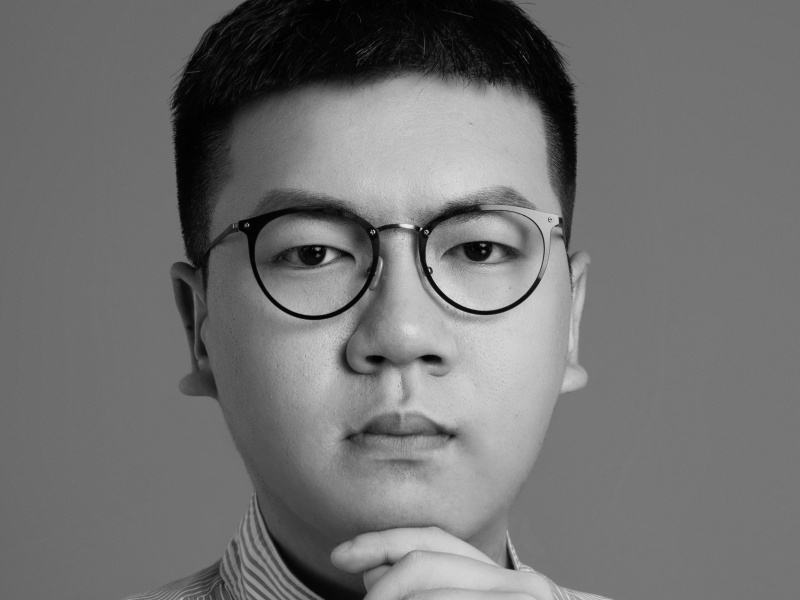The 7th edition of Luxury Society’s Keynote event in Shanghai saw over 140 guests from luxury brands, digital platforms, services providers and media in attendance, and examined opportunities for the luxury industry to develop social commerce within China’s digital ecosystem.

The 7th edition of Luxury Society’s Keynote event in Shanghai saw over 140 guests from luxury brands, digital platforms, services providers and media in attendance, and examined opportunities for the luxury industry to develop social commerce within China’s digital ecosystem.
The 2021 edition of Luxury Society’s flagship Keynote event, co-hosted by DLG (Digital Luxury Group), the leading independent digital agency for luxury brands, and China's leading e-commerce solutions provider Leqee, took place on 25 November at the Sukhothai Shanghai. More than 140 luxury industry insiders from brands, platforms, service providers, and media attended the event that took a closer look at social commerce, a key trend in China's ever-changing digital landscape.
According to a recent study, only 8 per cent of luxury consumer journeys in China are not influenced by online touchpoints. This indicates that not only have Chinese consumers fully embraced luxury online, but also demonstrates the rapid development of online platforms in this market, allowing brands to launch more channels to communicate with consumers and ultimately drive conversions.
This premise underpins the concept of social commerce. Pablo Mauron, Partner and Managing Director China at DLG (Digital Luxury Group), stated in the first keynote of this conference that rolling out more enhanced digital experiences is critical to resonating with consumers in the face of a more diverse consumer journey. Beyond traditional content, a variety of experiences, services, and loyalty programmes can serve to effectively enrich the journey and extend consumer lifecycles.

This sentiment was echoed in the discussion panel featuring Veronique Yang, Partner & Managing Director at Boston Consulting Group; Vanessa Li, Marketing Vice President at Pandora China; and Catherine Shen, E-commerce Business Operations Director, Prestigious Cosmetics & Luxury at Douyin with Luxury Society's Editor, Alexander Wei about the digital consumer journey. Yang pointed out that consumers place a great deal of emphasis on services due to the nature of luxury goods. If brands and platforms are looking to expand their digital offerings, the focus should be on providing consistent services online without diluting brand image, rather than simply aiming for conversions.
WeChat, a key channel for global luxury brands to develop their direct-to-consumer (DTC) businesses in China, is an important vehicle for this, allowing brands to roll out diverse services and experiences through its platform. "The effort brands make on WeChat is not unlike cultivating a garden of their own," Peter Chen, Director & Luxury Lead at Tencent Smart Retail, said in a fireside chat with Shirley Xue, a columnist for the Chinese edition of the Financial Times. “When compared to marketplaces, brands' WeChat assets can be viewed as a digital extension of offline stores, where consumers can engage directly with brands through Mini Programs or other touchpoints within the WeChat ecosystem when they do not have access to a physical storefront.” However, given WeChat's decentralised ecosystem, brands must also make use of touchpoints that connect the public and private domains – such as WeChat Channels – to activate consumers.
Livestreaming sessions on such private brand channels is one way to do this, shared Archer Li, Vice President of E-Business at SEPHORA China. In a panel discussion also comprising of Hublot's Greater China Digital Director, Tobias Bordal; and Elsie Zhang, Client Development Director at DLG, Li explained the difference between SEPHORA's strategy in the public and private domains. Unlike on other e-commerce platforms, the livestreaming sessions it hosts on its WeChat Mini Program is not driven by discounting activations such as group buying or flash sales, but rather by leveraging rich content such as beauty tutorials and product presentations to stimulate user engagement.
However, building up these private DTC channels requires time and investment. E-commerce service provider Leqee discussed the impact of public and private domains on transactions, as well as why brands should invest in DTC channels today. Private domains, as brand-owned infrastructures, give brands more flexibility in terms of developing the overall experience, as well as more options in terms of data collection and marketing cadence as opposed to online marketplaces, for instance.
But to do so, brands must integrate consumer data across all channels. Peng Gao, Co-Founder and Chief Executive Officer of Convertlab, highlighted the importance of consumer data platforms in his keynote speech, stating that building an integrated and holistic data platform can help brands improve marketing efficiency throughout the consumer journey, from customer acquisition to retention.

Other executives from luxury brands also shared their experiences in developing social commerce in the Chinese market today during the conference. Yann Bozec, President of Tapestry Asia Pacific and President & Chief Executive Officer at Coach China, spoke about Coach's strategy of incubating influencers internally in a fireside chat with The Business of Fashion's China Correspondent Casey Hall. Coach now boasts more than 400 in-house influencers in China, and conducted 350 livestreaming sessions in October alone. The brand intends to use this strategy to communicate with customers more effectively on various digital platforms, such as Douyin and WeChat, via emerging forms of content such as livestreaming and short videos.
“Today, we are talking about the convergence of social and commerce, and the lines are being blurred,” Mauron explained. “Firstly, brands have the possibility of developing the consumer journey that happens vertically within the same channel. Secondly, it brings more touchpoints between brands and consumers, which in theory means more growth.” Social commerce is gaining momentum and helps brands find more room for growth in this market, but brings with it the challenge of providing even better online experiences that resonate with discerning Chinese consumers.
Click on the links below to download the keynote presentations by Pablo Mauron, Partner and Managing Director China at DLG (Digital Luxury Group) and Peng Gao, Co-Founder and Chief Executive Officer at Convertlab.










